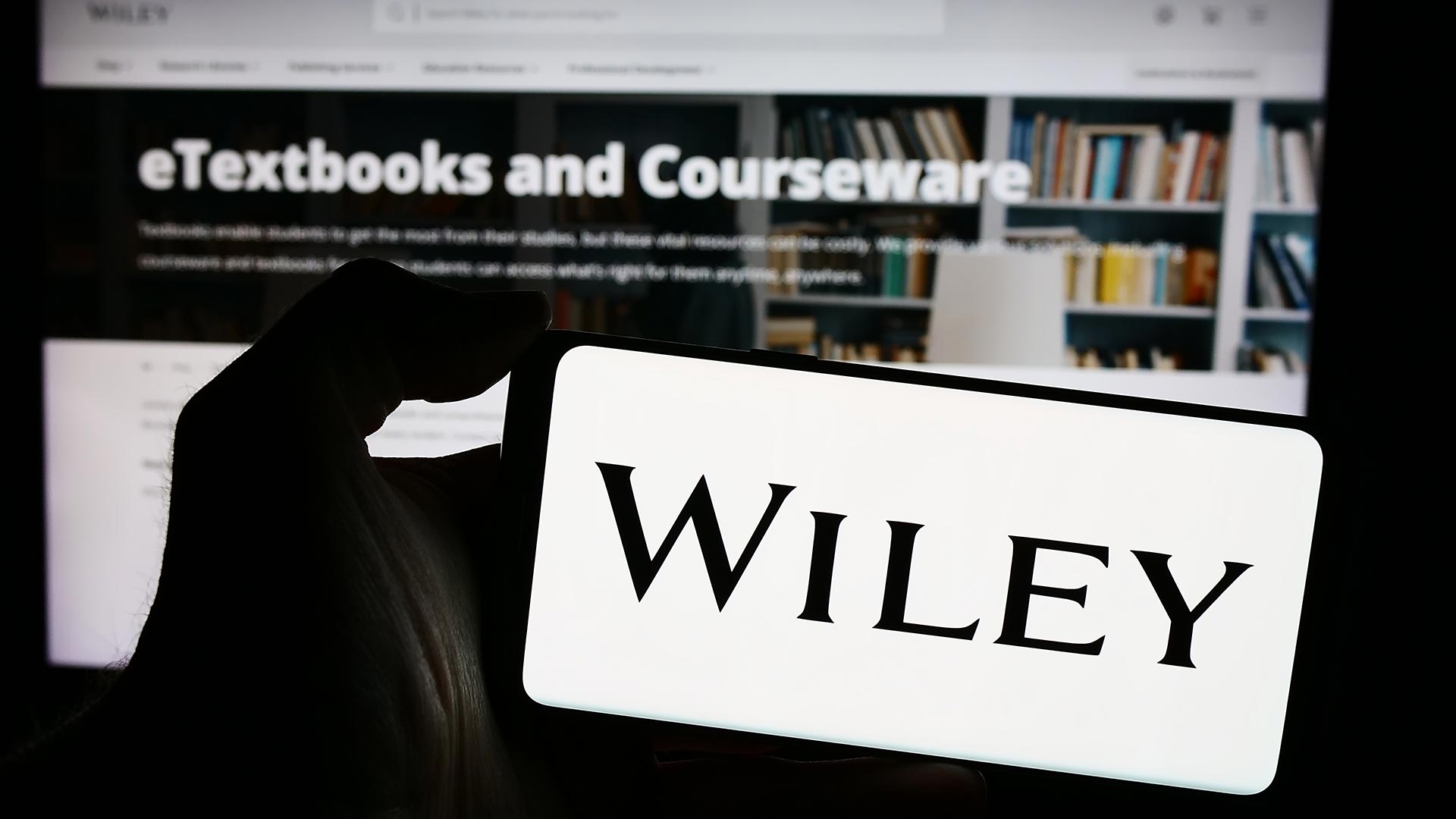You are viewing your 1 free article this month. Login to read more articles.
Wiley set to earn $44m from AI rights deals, confirms 'no opt-out' for authors
Academic publisher Wiley has revealed it is set to make $44 million (£33 million) from Artificial Intelligence (AI) partnerships that it is not giving authors the opportunity to opt-out from.
The US publisher is the latest to capitalise on deals to give tech firms access to its authors’ content to train their Large Language Models (LLMs).
Wiley has already earned $23 million from AI deals and confirmed to The Bookseller that it is set to make a further $21m this financial year.
A spokesperson confirmed that Wiley authors are set to receive remuneration for the licensing of their work based on their “contractual terms”.
In July, authors hit out another academic publisher, Taylor& Francis, the parent company of Routledge, over an AI deal with Microsoft worth $10 million, claiming they were not given the opportunity to opt out and are receiving no extra payment for the use of their research by the tech company. T&F later confirmed it was set to make $75 million from two AI partnership deals.
The Bookseller asked Wiley about opt-outs should authors not want their work used to train AI chatbots. The firm confirmed it offered “no specific opt-out for authors on these licensing agreements” should they not wish to participate.
A spokesperson said: “Creating an opt-out or opt-in for a specific type of licensing on a case-by-case basis would erroneously support AI developers’ specious claim that licensing is not scalable.”
When asked about the tech companies behind the two deals, Wiley’s spokesperson replied: “We consider information about specific licensing agreements to be confidential, in accordance with the terms of the agreement.”
It added: “Wiley is committed to protecting authors’ and copyright holders’ rights. We monitor AI model developers for use of copyrighted material without permission and seek protections against copyright violations.”
“As with any commercial arrangement for the use of Wiley-published content, Wiley compensates its partners (e.g. book authors, publishing partners) in accordance with the contractual terms. Our contractual arrangements are confidential, so we do not disclose specific information about their financial terms.”
The Society of Authors recently wrote to AI firms demanding “appropriate remuneration” and consent for the use of their work.
Last week, lawyers acting on behalf of authors Andrea Bartz, Charles Graeber and Kirk Wallace Johnson filed a copyright infringement case in California, US, claiming Anthropic had used “pirated” copies of their books to teach its AI chatbot, Claude.
















